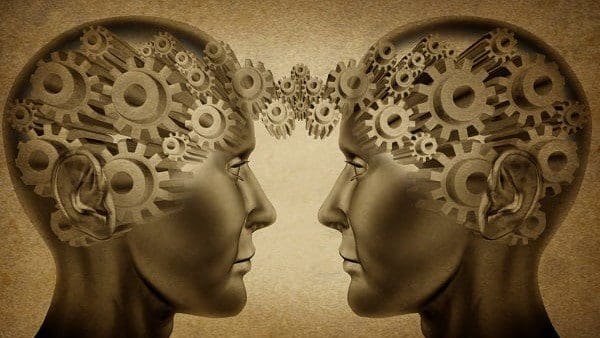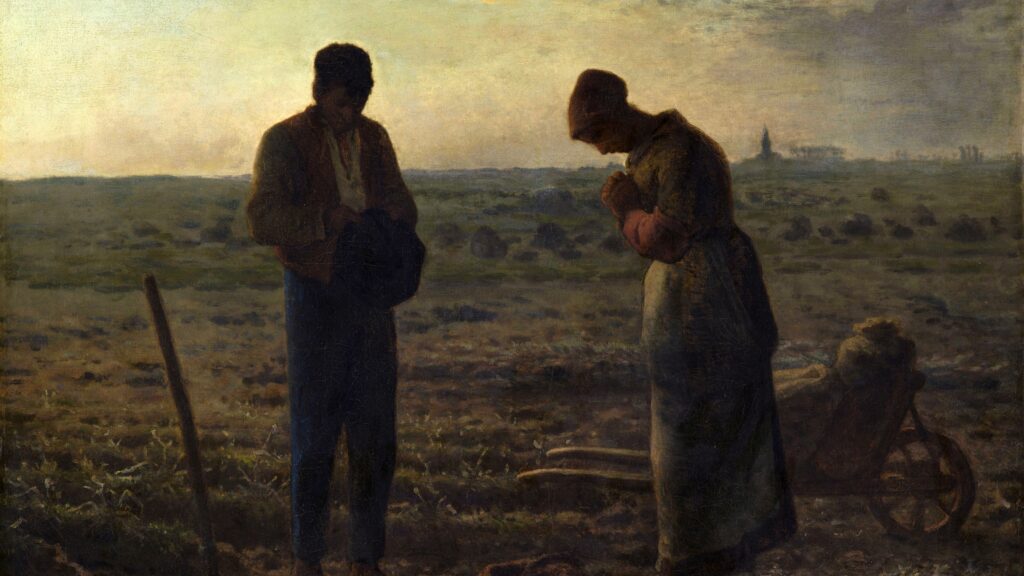Following the death of Michael Oakeshott, several authors interpreted his oeuvre as placing the British thinker in the liberal camp. The ‘whose Oakeshott-debate’ has actually continued ever since: both liberals and conservatives consider him their ‘own’, but there are also interpretations according to which he was neither liberal nor conservative. As Attila Károly Molnár puts it: liberal interpretations began especially with Rorty’s analyses of Oakeshott, who ‘sees Oakeshott as a representative of sceptical liberalism’.[1]
However, in Oakeshott’s writings we find many more conservative than liberal characteristics. As the above quoted author emphasizes: Burke’s influence can be found in them, and liberal interpretations forget his concept regarding authority, or the fact that he attributed a different meaning to the rule of law than the liberals. It is important to emphasize that Oakeshott described the conservative position sympathetically in his essay ‘On Being Conservative’. He wrote the following:
‘To be conservative, then, is to prefer the familiar to the unknown, to prefer the tried to the untried, fact to mystery, the actual to the possible, the limited to the unbounded, the near to the distant, the sufficient to the superabundant,
the convenient to the perfect, present laughter to utopian bliss.’[2]
Oakeshott’s critique of the Enlightenment and his rejection of concepts such as the common good or equality can be seen in several instances. He was also strongly sceptical of democracy, which is most emphasized in his essay ‘The Masses in Representative Democracy’.
According to his interpretation, the appearance of the mass man is a modern, secular development that emerged after the disintegration of the Christian medieval status quo. This criticism of the mass man—although it also appears in the works of representatives of classical liberalism, such as Mill or, later, Ortega y Gasset—receives a conservative emphasis in Oakeshott. According to our author, the crowd only accepts those who are like it; the mass man wants to impose unanimity of opinion and action on everyone.
The mass man is the ‘enemy of the individual’, has more emotions than thoughts, more instincts than views and therefore needs a leader. The concept of the leader here means a political leader: it can be democratic or dictatorial.
The crowd and the mass man are opposed by the (true) individual.
The association of true individuals does not need a leader, but a ruler. However, the leader of the crowd is ‘the individual manqué’ who is able to appear both as a copy of his followers and at the same time, being their master. At the same time, Oakeshott does not name the leaders of totalitarian dictatorships of the 20th century as representatives of ‘the individual manqué.’ Thus—especially when contrasted with the ruler as an apparently positive figure—it can be interpreted as a modern democratic, as well as a dictatorial leader. Oakeshott’s view of modern and contemporary developments in European political culture can be seen from the fact that, according to his interpretation, the enemy of the individual and its leader mutually conditioned each other, satisfying each other’s needs. To this, he added: if the leader shows even the smallest sign of individuality, then suspicion is already awakened in the crowd.
Oakeshott’s views criticizing modernity and the Enlightenment—therefore, not specifically liberal views—are also reflected in his stating that the development of the morality of ‘equality’ and ‘solidarity’ are not beyond dispute, since starting from the 17th century, the language of politics took to overusing a vocabulary of an ‘expiring social order.’ This new language of politics at the same time reflects the aspirations of the ‘enemy of the individual.’ In relation to modern politics, Oakeshott makes a sharp distinction between parliamentary government, which the true individual creates for himself, and popular government, which is actually the government of the mass man.
Antony Quinton sees Oakeshott’s conservatism as almost exclusively epistemological.[3] He sees its starting point as the thesis on the nature of rational action. According to Quinton, what Oakeshott refers to as rationalism, and what we could more precisely call ‘technical rationalism,’ means the conscious selection of the already proven means of the model of rational action in order to achieve a well-defined and predetermined goal. This thesis refers to rational behaviour in general, and especially to the manifestation of this behaviour in politics, which Oakeshott defined as an activity that strives for agreements between cooperative groups, and which is a kind of problem-solving, engineering activity. This modern, rationalist understanding of action mistakenly considers all knowledge relevant to action as technical knowledge, as something that can be recorded in books or instructions for use, and of which Machiavelli’s The Prince provides an early example in the field of politics. However, the teachable and learnable technique is only a secondary and superficial element of our ability to act, the basis and precondition of which is actually unformulated and unarticulated practical knowledge, the knowledge of how to do something—and this can only be shared and mastered.
It can be said that Oakeshott’s world view was deeply influenced by scepticism—and therefore,
the cornerstone and starting point of his political philosophy was a sharp critique of rationalism.
According to him, the social engineering approach cannot be applied to the world of politics without hindrance and without limits. He noted with regret that rationalism, ‘the most remarkable intellectual fashion of post-Renaissance Europe,’[4] had left its mark on everything, but (except for religion) perhaps nowhere more than politics. And yet, he pointed out, ‘the world of politics can be handled the least rationally, because politics is always greatly influenced by traditions and circumstances on the one hand, and the temporary nature on the other.’ The rationalist starts from the fact that the infallible compass of political action is reason without shackles, freed from prejudices and the constraints of tradition, and from this it also follows that all political conflicts must and can be handled with methods and tools chosen on a scientific basis. The rationalist’s activity thus largely consists of
‘bringing the social, political, legal and institutional inheritance of his society before the tribunal of his intellect;’[5]
In the eyes of the rationalist, the fact that something has been around for a long time does not in itself mean anything or prove anything.
‘To patch up, to repair (that is, to do anything which requires a patient knowledge of the material), he regards as waste of time;
and he always prefers the invention of a new device to making use of a current and well-tried expedient.’[6]
As a result, he considers the preservation or even development of traditions, adapting them to the circumstances, as surrender—and replacing the destroyed traditions with ‘self-made ideologies.’ In this context, Oakeshott stated that the rationalist ‘wants to take on the qualities of an engineer’: his thinking is dictated by the fetishization of technical rules. He believes that there is always a rational, perfect solution, and thus for him there is no place for ‘the best in relation to the circumstances’, only ‘the best.’ And the policy of ‘uniformity ‘also follows from this kind of perfectionist policy, because in a system where there is no room for specific and necessarily changing circumstances, there can be no variety.[7]
What can this confidence of the rationalist be traced back to? Oakeshott found the answer in the rationalist’s peculiar way of thinking about human knowledge. In all activities, two types of knowledge appear: ‘technical’ and ‘practical’. The former is the type of knowledge that can be accurately described, proven and can be learned from books. Technical knowledge seems to be a kind of knowledge that meets the standard set by the rationalist: certainty. The rationalist is therefore convinced that this form of knowledge is worth much, much more than ‘practical’ knowledge.
‘The second sort of knowledge I will call practical, because it exists only in use, is not reflective and (unlike technique) cannot be formulated in rules.’[8]
According to the rationalist, practical knowledge is not real knowledge—in fact, there can be no knowledge that is not of a technical nature. However, he is wrong: he endows a part with the properties of the whole. On the other hand, according to conservatism, priority is given to practical knowledge based on experience over technical knowledge. As proof of the rise of rationalism, which idolized technical knowledge, Oakeshott mentioned that ideologies took the place of traditions and destroyed them everywhere, with the aim of creating completely new things rather than improving the existing ones.
Oakeshott’s criticism of rationalism, inseparable from modernity, was not accompanied by a rejection of individualism. In fact,
a specific conservative individualism is one of the defining features of most of his writings.
The concept of ‘community’ had a positive content in the eyes of many conservative thinkers, but for him the emphasis was clearly on the individual, and the positive role was given to the concept of ‘political association’, the formation of which requires the individual to break away from the community that holds him captive.
In his article entitled ‘The Masses in Representative Democracy’, he analysed the process and consequences of the formation of the individual and the mass man, who is opposed to him, in historical retrospect.
Oakeshott started from the fact that it is actually inaccurate to connect the emergence of the ‘man of the masses’ to the 20th century, as many do. The crystallization of this type takes place in parallel with the emergence of individuality—and there is a causal connection between the two. In Western European history, at the end of the Middle Ages, in the 14th and 15th centuries, the individual appears ‘with his modern style’. This turn changed the conditions of medieval thinking, since before individuality came to the fore, the traits that distinguished people were considered insignificant compared to the common characteristics of the members of the given group.
With the loosening of community bonds, a new type of human character gradually emerged, and this was also reflected in ethical theory: modern writings dealing with moral action all begin with the assumption of a person who independently chooses and follows the directions of his activities. The ‘experience of being an individual’ had a profound impact on all areas of social and political life. As far as the political sphere is concerned, the most marked changes were seen in the ‘interpretation of the behaviour expected of leaders and the followers’: individualistic aspirations created modern representative democracy. What was behind this? That all those who wanted to exploit the potential of individual existence ‘demanded an instrument of government capable of transforming the interests of individual existence into rights and duties. According to Oakeshott, In England (and elsewhere) this government was embodied in the parliamentary system, parallel to the fact that the place of the community was taken over by the association of individuals. However, in the new, transforming world, there were many people who could not take advantage of the opportunities that opened to the individual, so from the 16th century in Europe, not only individuality emerged, but also the so-called individual manqué, developed.
Not only one, but two—opposite—characteristics. It is important to note: this ‘individual manqué’ was not some remnant of the past, but a distinctly modern character, and it was created by the same process, the disintegration of traditional communities, that also produced individuality. Inferior to individuals and thus frustrated, the ‘individual manqué’ became the enemy of the real individuals, and they tried to break out of their predicament by trying to undermine the moral authority of the individual and to impose their will on the whole of humanity. This aspiration really gained strength when the ‘individual manqué’ realized their numerical superiority, the fact that they make up the most populous class of modern European society. This is how the ‘enemy of the individual’ realized his status as a ‘man of the masses.’[9]
Is Oakeshott’s conception of the individual liberal? As Károly Attila Molnár also points out: his individualism differed from the individualism of liberalism, which rejects traditions.[10] Oakeshott assumed that individuality can only be created in some context, and that freedom can only be enjoyed in order. It is not the acceptance of authority, but the absolutization of reason that destroys individuality, as Oakeshott explained in his preface to Hobbes’s Leviathan.
In On Human Conduct, Oakeshott defined two main paths of European state development.
One is societas: in this, the bond that binds the members together is not some specific goal, but the acceptance of common rules of action,
that is, it is actually the same as ‘moral association.’ The other type is the universitas, which can be linked to the ‘entrepreneurial association’. The model of the former is the medieval regnum: here, the ruler and his subjects are bound only by vassal loyalty: its members are free precisely because they do not depend on each other in terms of satisfying their needs.
According to Oakeshott, the father of the conception of the state as an enterprise was Francis Bacon, one of the exemplars of rationalist planning. Throughout history, it has been proven that ‘enlightened’ and ‘system-oriented’ governments always create universitas-type states, and their excesses lead to totalitarian regimes.
In these states, the ruling and the educational authority are interwoven to the detriment of freedom.
Does all this mean that Oakeshott would have considered the Middle Ages as a model? Not quite. As he notes at the end of his study ‘The Masses in Representative Democracy’, he does not see the mass man as having flooded everything in modern society, and rather believes that the advance of the mass man has been moderated, that individuality is the substance, and ‘the enemy of individuality’ is only a shadow image. Oakeshott, in this regard, saw the situation of the modern world quite optimistically, although the essay was written in the early 1960s so it could obviously not reflect on the developments that have taken place since then.
[1] Attila Károly Molnár, ‘Bevezetés’, in: Michael Oakeshott, Politikai racionalizmus, Új Mandátum, Budapest, 2001. 7-123, 11.
[2] Michael Oakeshott, ‘On Being Conservative’, in: Rationalism in Politics, Methuen & Co., London, 1962, 168-197, 169.
[3] Anthony Quinton: The politics of imperfection. Faber and Faber. London and Boston, 91.
[4] Oakeshott, Rationalism in politics, 1.
[5] Oakeshott, Rationalism in politics, 4.
[6] Oakeshott, Rationalism in politics, 4.
[7] Oakeshott, Rationalism in politics, 4-5.
[8] Oakeshott, Rationalism in politics, 8.
[9] Michael Oakeshott, Politikai racionalizmus, Új Mandátum, Budapest, 2001, 397-413.
[10] Molnár Attila Károly, ‘Bevezetés’, 7-123, 83-106.








